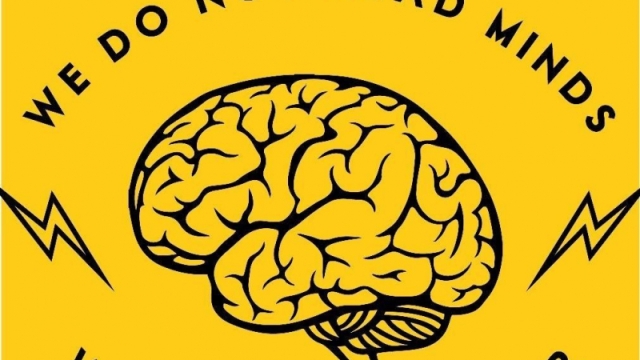
Psychology, the intricate study of the human mind, unravels the enigmatic workings of our thoughts, emotions, and behaviors. Deeply rooted in the philosophical curiosity of our ancestors, this field has evolved exponentially over the centuries, merging various perspectives and methodologies to shed light on the complexities of human nature. From Sigmund Freud’s groundbreaking psychoanalysis to contemporary cognitive and behavioral approaches, psychology offers a compelling narrative of our inner world, inviting us to explore the depths of our own consciousness and understand the intricate tapestry of the human experience.
At its core, psychology is a multi-faceted discipline, encompassing a wide array of subfields that enable us to explore the vast intricacies of the human psyche. From understanding the mechanisms that underlie perception and memory to exploring the influences of societal factors on individual behavior, this field is as expansive as the human mind itself. With its roots firmly planted in scientific observation, psychology utilizes rigorous research methodologies to illuminate the intricacies of our cognition, emotions, and social interactions. It compels us to question what it means to be human, diving deep into the intricacies of our thoughts, feelings, and motivations in an attempt to unlock the secrets that drive our everyday actions.
Indeed, the study of psychology goes far beyond mere introspection and speculation; it is a rigorous discipline that employs both qualitative and quantitative research methods to explore the depths of human experience. From experimental studies to observational research, psychology employs a wide range of techniques to unravel the mysteries of the mind. Through this scientific inquiry, psychologists have made significant strides in understanding mental health, cognitive development, personality, and more, providing valuable insights that can improve our lives on both an individual and societal level.
As we embark on a journey through the intricacies of psychology, we invite you to explore the fascinating world of the human mind. From unraveling the mysteries of dreams to deciphering the complexities of human relationships, the study of psychology offers a unique lens through which to understand ourselves and the world around us. Join us as we dive into the depths of this captivating discipline and unveil the hidden layers of the intricate tapestry that is the human mind.
Understanding the Basics of Psychology
Psychology is a fascinating field that explores the intricate workings of the human mind. It delves into the depths of our thoughts, emotions, behaviors, and the way we perceive the world around us. Through the study of psychology, we can gain a better understanding of ourselves and what drives us to think and act the way we do.
One fundamental concept in psychology is that of perception. Our perception shapes our reality, influencing how we interpret and make sense of the information we receive from our environment. It involves not only our five senses but also our past experiences, beliefs, and biases. By understanding how perception works, psychologists can unravel the complexities of human cognition and the unique lens through which each individual views the world.
Another key aspect of psychology is the study of emotions. Emotions play a significant role in shaping our behavior and decision-making processes. They can range from joy and excitement to anger and sadness, influencing how we interact with others and respond to different situations. Understanding emotions helps us comprehend the motivations behind our actions and provides insights into the intricacies of human relationships.
Furthermore, psychology examines the development and maintenance of our mental processes and behaviors. This includes investigating the impact of our upbringing, environment, and social interactions on our psychological well-being. By studying how individuals grow, change, and adapt throughout their lives, psychologists gain valuable knowledge that can be applied in various contexts, such as education, therapy, and organizational behavior.
In conclusion, psychology is a multifaceted discipline that aims to uncover the depths of the human mind. By exploring concepts such as perception, emotions, and development, psychologists gain insights into what drives and influences our thoughts, feelings, and behaviors. Through a better understanding of the basics of psychology, we can enhance our self-awareness and improve our interactions with others.
Exploring the Different Branches of Psychology
Psychology, as a multi-faceted discipline, encompasses various branches that delve into different aspects of the human mind. These branches contribute to our understanding of human behavior, thoughts, and emotions. In this section, we will explore three prominent branches of psychology that shed light on different dimensions of human experience.
Clinical Psychology: Clinical psychology focuses on the assessment, diagnosis, and treatment of mental disorders. Clinical psychologists work closely with individuals who are experiencing psychological distress or struggling with mental health conditions. Through therapy sessions and psychological assessments, these professionals aim to alleviate distress and enhance psychological well-being. By investigating the underlying causes of mental health issues, clinical psychology plays a vital role in helping individuals lead fulfilling lives.
Cognitive Psychology: Cognitive psychology explores the intricate workings of the human mind by studying mental processes such as perception, attention, memory, and problem-solving. This branch seeks to understand how individuals acquire, process, and retain information. Cognitive psychologists also investigate higher-level cognitive functions like decision-making and language development, shedding light on the complexities of human intelligence and cognition.
Social Psychology: Social psychologists study how social interactions and social influences shape human behavior and attitudes. By examining the influence of social norms, group dynamics, and interpersonal relationships, social psychology helps us comprehend the factors that impact our behavior in social settings. This branch also explores topics such as prejudice, conformity, and persuasion, offering insights into how individuals perceive and interact with others within the broader social context.
By exploring the different branches of psychology, we gain a deeper understanding of the intricate mechanisms that guide human behavior, cognition, and emotions. Each branch offers unique perspectives and contributes to the comprehensive field of psychology. As we continue our exploration, we will uncover further insights into the complexities of the human mind and the fascinating interplay between our thoughts, feelings, and actions.
Delving into the Intricacies of the Human Mind
Understanding the depths of psychology allows us to unravel the complex workings of the human mind. It enables us to delve into the intricate network of thoughts, emotions, and behaviors that shape our very existence.
Psychology explores the fascinating realm of human cognition, investigating how our minds perceive, process, and interpret information from the world around us. From the unconscious motivations that drive our actions to the conscious decision-making processes we employ, every aspect of human behavior is a subject of inquiry within the realm of psychology.
Furthermore, psychology delves into the intricate interplay between nature and nurture, examining how our genetic makeup interacts with the environment to shape our mental processes and behaviors. Through studying factors such as personality traits, social influences, and childhood experiences, psychologists strive to unravel the complexities of what makes us who we are.
Psychologist Hawthorn
Ultimately, delving into the intricacies of the human mind through psychology provides valuable insights into our own inner workings and those of others. By unraveling the depths of psychology, we gain a greater understanding of the human experience and pave the way for advancements in mental health, education, and overall well-being.


